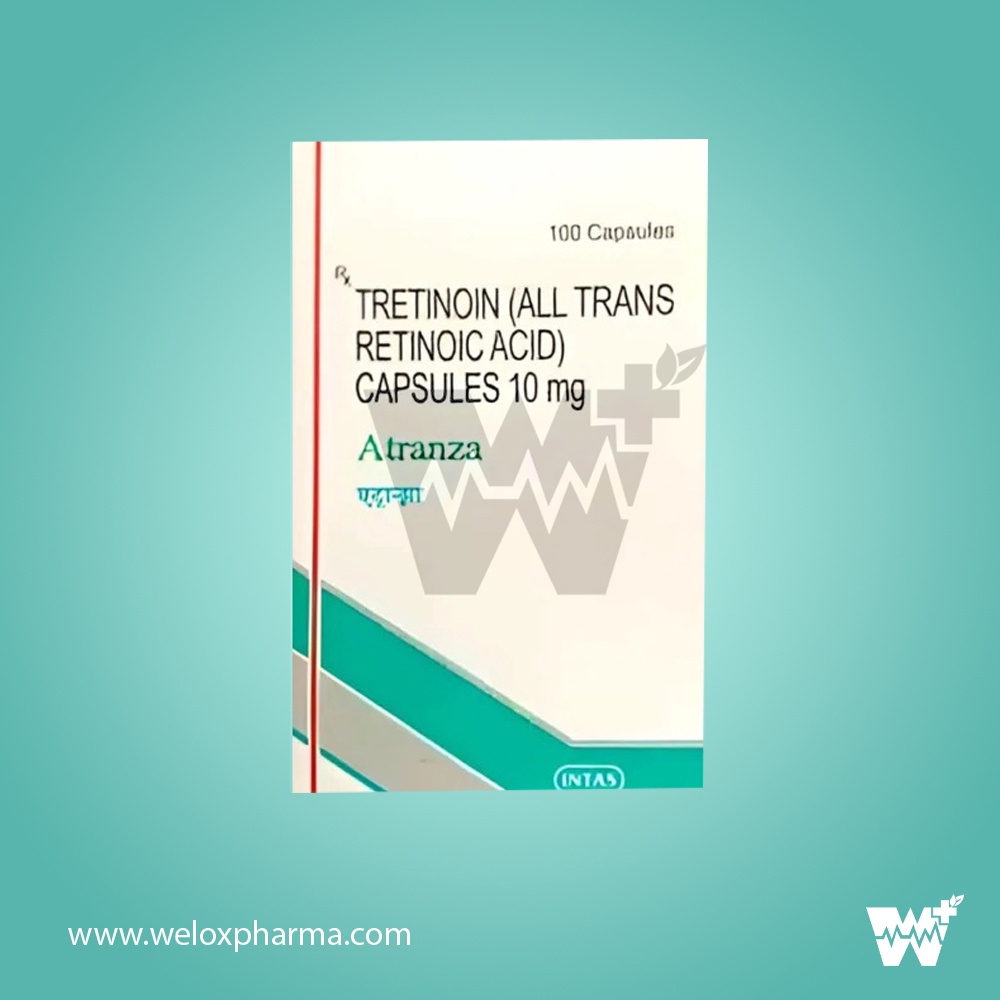



Introducing Atranza Capsule: A Revolutionary Solution in Blood Disorder Management
Atranza Capsule, a member of the retinoid drug class resembling vitamin A, stands as a pioneering therapeutic agent for acute promyelocytic leukemia, a specific type of blood disorder. This medication operates by impeding the proliferation of specific abnormal blood cells, heralding a breakthrough in the treatment landscape.
Unlocking the Potential of Atranza Capsule:
Atranza Capsule's efficacy lies in its ability to slow down the growth of specific aberrant blood cells. For optimal results, it is recommended to take the capsule with food, preferably at the same time daily, minimizing the risk of missed doses. While noticeable improvements may take a few weeks, consistent usage ensures the maximum benefit. If no progress is observed after an initial period, consultation with your physician is advisable. It is crucial to adhere to the prescribed dosage, as exceeding it won't expedite results and may amplify side effects.
Applications of Atranza Capsule:
Treatment of Acne:
Atranza Capsule, classified as a form of vitamin A, plays a pivotal role in managing acne. By effectively clearing skin pores and preventing the emergence of spots or pimples, it presents a reliable solution for achieving clearer skin. Although results may take a few weeks to manifest, continuous usage is recommended, even if initial progress appears slow.
Management of Acute Promyelocytic Leukemia:
Atranza Capsule's primary application lies in the treatment of acute promyelocytic leukemia. Its mechanism of action involves slowing the growth of abnormal blood cells, while concurrently promoting the development of normal, mature cells in the bone marrow and blood. This innovative approach significantly contributes to the management of blood cancer.
Understanding the Mechanism of Action:
Atranza Capsule, being a form of vitamin A, exerts its therapeutic effects by inhibiting the growth of specific abnormal blood cells. This mechanism is crucial in treating acute promyelocytic leukemia, showcasing its potential as a game-changer in blood cancer management.